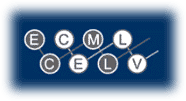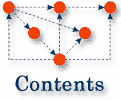
From Theory to Practice: Developing
Quality Systems through International Projects
Hans Brosse
![]()
Background
General conceptions and points of reference on Foreign Language
Teaching
The White paper on Education and Training of the European Commission "Towards the learning society" published in 1995 is part of a process designed to provide an analysis and to put forward guidelines for action in the fields of education and training. The development of proficiency in three European languages is an objective of the white paper. The White Paper proposes Community support for the introduction of assessment systems, including quality indicators and quality guarantee systems, covering the methods and materials used to teach Community languages (page 68).
Important reports and studies by the European Commission dealing with the quality of education have been published since (For example in June 1999 "Evaluating quality in school education" a European pilot project, in October 1999 Indicators and Benchmarks of Quality of School Education and in May 2000 the "European Report on Quality of School Education, Sixteen Quality Indicators."). New concepts of learning, information and communication technology, (E-learning) life long learning, regional cooperation, early school learning, setting up networks for quality control, internationalisation, links between the labour market and the world of education, are some of the new educational concepts discussed to day in schools.
In the specific framework of foreign language teaching there are important developments. The Council of Europe's work in modern languages has provided for extensive development over the last 40 years; first in establishing patterns of international co-operation (1962-1971) followed by the development of basic educational and linguistic principles (1971-1976). These principles were piloted in many contexts (1977-1981) and supported their application for the reform of language teaching in many member countries (1982-1987). Language learning for European citizenship and Language policies for a multilingual and multicultural Europe, the latest projects of the Council of Europe, aimed at assisting member states in taking effective measures to enable all citizens to learn to use languages for improved mutual understanding and personal mobility.
The Council has developed key principles guiding the work in modern languages, adopted a strategy for cultural cohesion and cultural pluralism and initiated the European Language Portfolio. In 2001 the EU and the Council of Europe organised the European year of the languages with special budgets for informational and promotional language projects. The EU has build an impressive support structure for foreign language teaching, via Socrates, Lingua and Comenius substantial budgets have been provided to schools, teaching staff and other experts.
An international project: A Survey in secondary schools
Based upon the "Quality Guide for the evaluation and design of language
learning and teaching programmes and materials", the promotion of
foreign language teaching and learning was studied in three countries
- the Netherlands, Italy and Romania (The project is supported by the
EU in the framework of the Arion programme.) - involving nine schools
(three in each of the countries). Frameworks of complementary measures
have been designed to look at the quality of foreign language teaching.
New ideas and best practice in methods of learning and teaching foreign
languages were compared by exchanging information, teaching materials
and teaching experience.
Three aspects have been covered in particular:
- The
 ,
in particular in language learning programmes and materials;
,
in particular in language learning programmes and materials; - Learning other subjects through the medium of a foreign language;
- The process of internationalisation.
The aims/results of the project
- Raising awareness to the concept of quality in relation to modern language learning;
- Tools for measuring quality and indicators;
- Applying the indicators in the participating schools and making results available;
- Comparing, evaluating and analysing the studies, in order to make appropriate recommendations.
Activities
In the design phase of the project experienced teachers from
the participating schools compared their way of teaching and compared
sets of indicators. For this purpose, the European Platform for Dutch
Education made available 'global educational country-profiles', compiled
on the basis of already existing material and data gathered from Arion
seminars on various topics.
The aspects reflected in the 'profiles' included nine marginal factors playing an important role in innovation of foreign language teaching:
- The role of the school authorities: having a good appreciation of the process;
- Development of a school strategy;
- Motivation of teaching-staff and pupils;
- The quality of policymaking and implementation;
- Interaction and communication;
- Joint planning and implementation;
- The stimulation of co-operation and the sharing of responsibility;
- Internal communication and co-ordination;
- The availability of an adequate budget (for staff, facilities, material).
The drafting of the questions for the survey has been done at a seminar in the beginning of the project, March 2000. As a reference, quality indicators and quality profiles were taken from the Quality Guide. Aspects of good practice were studied, including questions for checking what quality assurance measures have been/should be taken.
The questionnaires and indicators made by the experts included aspects relevant to the assessment of quality standards in the education process, e.g.
- The effectiveness of the teaching process and of the resources used;
- The diversity of the courses available;
- The motivation, expertise and commitment of the teaching staff;
- The leadership, supervision and management supplied by school authorities;
- The quality standards the school sets itself;
- The testing and examination of pupils;
- The infrastructure and facilities in place;
- The motivation of the pupils,
- And last but not least, the degree of involvement shown by the parents.
In the implementation phase the schools have used these questions and carried out school-based investigations of the various aspects of quality. Using the indicators, assessments were made of different aspects of programmes and materials used in foreign language teaching.
The schools involved studied
- The linguistic content provided through FL tuition: functions and notions, grammar, vocabulary, texts and themes.
- The type, scope and weighting of activities in the teaching / learning process, e.g.: skills development (reading, writing, speaking, interacting), learning strategies, real life tasks, presentation, practical work to specific aims, use of modern technology.
- Organisational aspects: curriculum development, co-ordination, management, in-service training, assessment procedures, international co-operation, support structures
- Financial and legal aspects.
During this period of observation and monitoring (March-June 2000) data were collected about:
- the various aspects of foreign language teaching in the three countries involved,
- the combination of teaching other subjects through the medium of foreign languages,
- the results of foreign language teaching in relation to international co-operation.
Quality measurement
In the schools participating in this project self-evaluation is undertaken
and, in addition, inspectors regularly provide advice and, if necessary,
criticism.
In the three countries participating, there are calls for the quality of education to be improved through a regular measurement of standards, as well as for the publishing of the outcomes. This would allow targeted, individually tailored action in terms of the curriculum, teaching resources, in-service courses for teachers, restructuring of management and better links with parents.
In the evaluation phase a major seminar is foreseen to compare and analyse the project results.
The quality of the outcomes should be evaluated in terms of the gains in competence and awareness in relation to resources and prevailing conditions in the three participating countries.
The results of the seminar will be made available for further studies and activities, and may form the basis for further co-operation among the schools and organisations involved.
